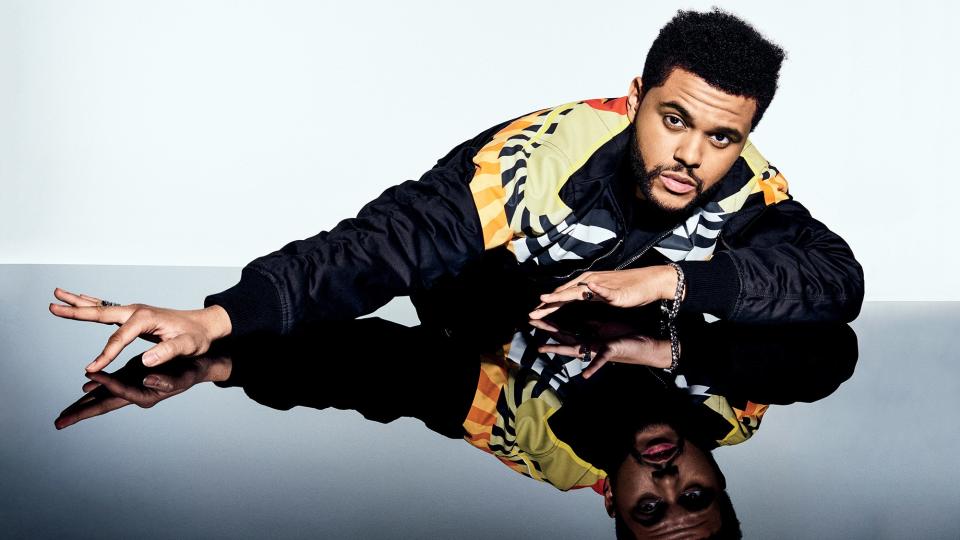The Weeknd, After Hours : The Best Song Is…
Pop stars like The Weeknd routinely put their stamps on the world. But rarely do their worlds forcefully overtake the existing one. That, of course, has not literally happened. But with the streets all but deserted and humanity isolated, it feels like we’ve all entered The Weeknd’s dark, solitary universe. (“I don’t like to leave my house too much,” he said in a recent interview, as if it needed reiterating.)
And so, it’s almost a spookily apropos moment for The Weeknd’s superb new album, After Hours. Released this morning, After Hours finds the singer returning to many of his favorite subjects: regrets over his own misbehavior (“Hardest to Love”), failed romance (the standout “Save Your Tears”), and dependency (“Alone Again”). It’s dark and moody, and comes from the perspective of a lonely narrator (appropriately, there are no features)—capturing the way a lot of people are feeling as they pace their living rooms and feverishly refresh the news.
But make no mistake: After Hours was long in the making, not some quickly cobbled together project aimed at capitalizing on a bleak moment. The Weeknd began teasing this album—originally calling it Chapter VI—back in 2018. And even if he hadn’t, the time and energy put into After Hours would be palpable. Production was handled primarily by Metro Boomin, Max Martin, and Illangelo, and from top to bottom their work is slick, inventive, and pristine—’80s sounds (shimmery synths, snaky brass, ambient undertones) refracted, and polished, to sound modern.
The album’s title is an allusion to Martin Scorsese’s 1985 New York nighttime odyssey. And throughout, there are traces of Howard Shore’s chillingly twinkly ticking-clock score. This After Hours, though, isn’t particularly wed to a specific place (though there is a song called “Escape From LA”), nor does it capture the film’s screwball energy. Instead, it latches onto the movie’s noir elements, and captures its propulsiveness—it really gets going midway through, but even early slow ballads, like “Scared to Live,” move. The Weeknd isn’t scurrying around a city so much as he’s scurrying around his haunted mind.
Some listeners might ding The Weeknd for his lack of thematic evolution—for retelling old stories and re-airing old anxieties. But in a moment of such discomfiting uncertainty, there’s pleasure to be found in the familiar. There was for me, anyway—and particularly where it concerned “Faith.”
What Pusha-T is to drug-slinging (ex: “I'm still a snow mover, blow harder than tuba”), The Weeknd is to drug-struggling, and “Faith” is among his masterworks in the genre. He sings about relapsing as something messy—exciting, euphoric, and ultimately tragic. “I've been sober for a year, now it's time for me / To go back to my old ways, don't you cry for me / Thought I'd be a better man, but I lied to me and to you,” goes the pre-chorus. For the first half of the song, everything bounces and floats, The Weeknd’s voice angelic as ever. But then the bottom fades out, and we find The Weeknd close to death, “in the back of a flashing car.” It should sound painful, but instead comes out serene. It’s one of The Weeknd’s great gifts—making the worst situations not just tolerable, but pleasurable.
Celebrity
He dated a Hadid, pioneered a hairstyle, and put out the biggest album on the planet, and yet Abel Tesfaye—a.k.a. The Weeknd—has remained a cipher. Now he opens up about sex, marriage, and his newly normal haircut.
Originally Appeared on GQ


